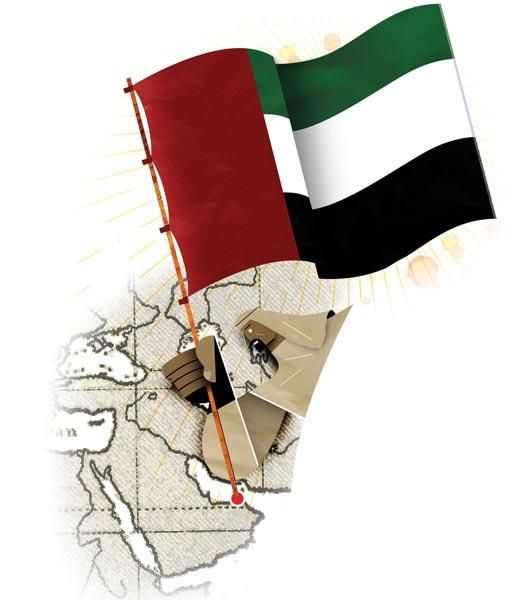In many ways the financial global roller coaster is a blessing for the UAE. It is the first true test of how solid the whole Dubai and UAE project is. The project had an easy ride so far with oil prices high and world market upbeat.
Time has come now to see how this unique economic model operates during economic crisis, even if it is not of its own making. The impact of the global financial tsunami is unavoidable, since the UAE is by far the most globalised economy in the Arab world and is the most integrated market in the global network. The first thing to keep in mind is that the World is Flat, as Thomas Friedman keeps saying, and it is not wise to pretend that the UAE is in any way immune to the ups and downs of the global economy. Every body is in this together and living in denial is not a smart way to live.
However, if the UAE economy and especially Dubai manages to withstand the test, no one will ever doubt the sustainability of the model. It will prove that it is not as vulnerable as some scholars have lately declared it to be. Christopher Davidson's latest book, Dubai: the Vulnerability of Success is an excellent scholarly work but it tends to exaggerate the weakness of the Dubai phenomenon.
The economic underpinnings are already proving to be as solid as they can be. Frankly there is no bubble ready to burst any time soon. Those who fanatically subscribed to the simplistic bubble theory are in for a surprise of their life.
These are tough times but all is not doom and gloom, at least not here in the UAE. Hardly any body is packing or leaving. No one is desperately selling or going broke. More people are coming in than going out. For every one person leaving there are easily ten ready to move in and take his place. Crisis or not, the UAE remains a land full of opportunities for its own people and far beyond. One thing is certain, this country does not welcome timid people.
But let us not be naïve and overly optimistic. Government and private sector as well as individuals at large ought to be cautious and judicious. It is extremely important to take the current global economic contraction and its possible impact on the UAE seriously and not dismissively. The government has already made its preemptive move to prop up the credit and boost bank liquidity. However, more firm decisions are needed including scaling down on ambitious plans, redundant projects and bombastic initiatives. This is just not the right time to behave like we are in an unsinkable Titanic. The underpinnings are strong, the vision is right, and the problems are manageable, but the UAE is no economic Titanic.
It is also legitimate to think that the era of double digit growth which has been around for more than a decade and a half is almost over. The get-rich-quick days are also numbered. Those hefty investment returns and nice double digit rates are not going to be around for some time to come. There are new realities and people have to adjust. But it is not the end for growth as such. What the UAE will go through for a while is a more moderate, more reasonable and rational single digit growth.
A slower rate of growth is most welcome. This is not only good news but is infinitely better than the fast moving pace of growth the last two decades. Going slow is best for the country, the city, and it is good for every body, locals as well as for the expats. Those who really care for the UAE should be advocating a slower not faster rate of growth. There is no need to prove anything any more. The UAE has already made it to the top. The country does not need to break more world records of building the biggest, the tallest, the longest and the most prestigious. It is time to stay down on the earth for a while. In Praise of Slow, by Carl Honore, is probably a book everyone should read these days.
That simply means the party might be over but the lights are still on. It is not party time but serious business time in the UAE. And if some think it is getting bad here, let them try their luck in New York, London, Tokyo, may be Seoul or even the more formidable Shanghai. Considering the global financial tsunami, the UAE is still by far the safest place to anchor. People are better off here than in any other global capital. The field remains much greener and healthier in the Abu Dhabi, Dubai and the rest of the UAE.
Dr Abdulkhaleq Abdulla is a professor of Political Science, Emirates University.











